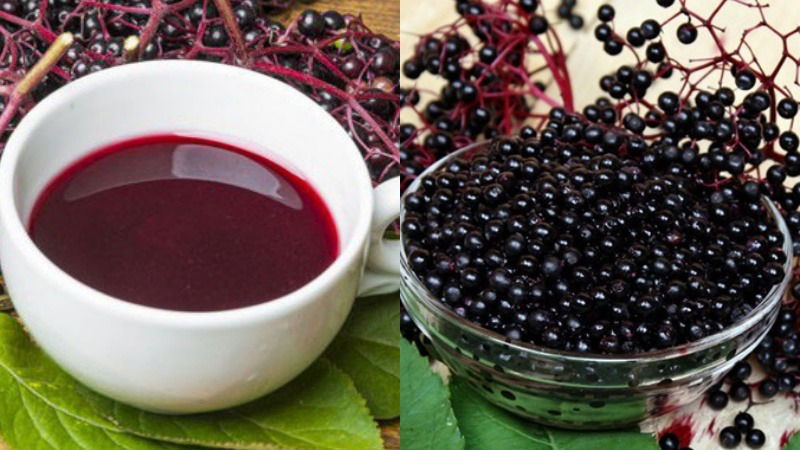
Elderberry has been treasured in natural healing traditions for centuries. Even Hippocrates—the famed “father of medicine”—referred to it as his “medicine chest.”
Historically, elderberries were used to address various ailments, from fevers to fatigue. Today, modern science is beginning to validate many of these traditional uses.
Packed with antioxidants and antiviral properties, black elderberry in particular has become popular as a natural remedy for colds, flu, and more. Here’s what current research reveals about this nutrient-dense botanical.
1. Natural Protection Against Viruses
Elderberry is best known for its antiviral potential. One of its active compounds, antivirin, may block viruses from penetrating healthy cells.
Several studies have found that taking elderberry extract at the onset of flu symptoms can reduce their intensity and duration.
During the 1995 flu outbreak in Panama, elderberry was even included in public health protocols.
More recent animal studies also show promise in reducing early-stage coronavirus infections, although human trials are still needed.

2. Faster Relief from Cold & Flu
Clinical research supports elderberry’s effectiveness in speeding up recovery from respiratory infections.
In a double-blind, placebo-controlled trial, participants taking elderberry syrup (like Sambucol) recovered from the flu in just 3 to 4 days—nearly half the time compared to those on a placebo.
Another study involving international travelers showed that elderberry reduced both the length and intensity of cold symptoms when used before and after flights.
Scientists believe elderberry’s plant compounds help block viral replication, especially in the first 48 hours after symptoms appear.
3. Boosts Immune Function

Elderberries are high in anthocyanidins—plant compounds with strong antioxidant and immune-supporting effects.
A 2019 lab study demonstrated that elderberry extract not only hindered viral spread but also stimulated cytokine production—molecules that help regulate immune responses.
This combination of immune activation and viral inhibition helps explain why elderberry is widely used during the cold and flu season.
4. Possible Anti-Can.cer Properties
Early laboratory studies suggest elderberry may help combat can.cer by reducing oxidative damage and slowing enzyme activity linked to tumor growth.
Extracts from both European and American elderberries have demonstrated this potential.
Though elderberry is not a cure, these findings indicate it may serve as a complementary tool in supporting cellular health alongside conventional treatments.

5. Relief for Allergies and Sinus Issues
Elderberry’s anti-inflammatory properties may also be helpful for allergies.
Traditionally used to treat seasonal symptoms like nasal congestion and watery eyes, it may also aid liver function, which is important for allergen processing.
In one study, a formulation with elderberry flowers improved the effects of antibiotics and decongestants in treating sinus infections.
6. May Help Regulate Blood Sugar
Historically, elderberry has been used in managing blood sugar levels.
Scientific evidence now shows that it may enhance insulin release and support glucose metabolism, especially in insulin-resistant cells.
While promising, elderberry should only be considered a supplemental aid and not a substitute for prescribed diabetes treatments.
7. Natural Support Against Inflammation
Chronic inflammation plays a role in numerous health issues, including heart disease and arthritis.
Elderberry’s high antioxidant content may help minimize tissue damage caused by inflammation.
Animal research has shown that it can lower markers of inflammation and oxidative stress.
Although studies in humans are limited, elderberry’s traditional use supports its role as a natural anti-inflammatory remedy.

Choosing a Quality Elderberry Supplement
When selecting elderberry products, opt for:
- Alcohol-free formulas (gentler on the body)
- Standardized anthocyanin levels
- Reputable brands use black elderberries (Sambucus nigra)
Typical recommended dosages:
Adults: 1 tablespoon, up to 4 times per day
Children: ½ tablespoon, up to 4 times per day
Be sure to follow product directions, and consult your healthcare provider—especially if you’re pregnant, nursing, or taking medication.




















